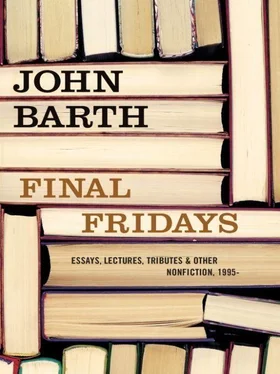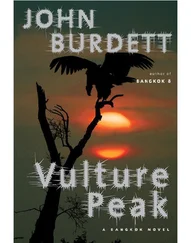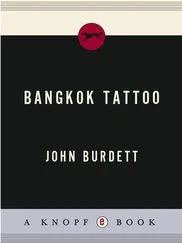IN SHORT, THERE are lots of things you can do with a camera that you can’t do on the printed page, but there are also important things that you can do on the printed page that can’t be done with a camera. Most important among these, obviously, is the rendering of sensibility , as apart from sensation itself. Fiction can’t give us the sights, sounds, feels, and smells themselves — language itself cannot, except for occasional onomatopoeic suggestion — but fiction is uniquely privileged to tell us what things look/taste/sound/feel/smell like , to particular human sensibilities in particular situations. Aristotle declares that the subject of literature is “the human experience of life, its happiness and its misery.” I would add that the true subject of printed lit is the human experiencing of that experience: not sensation, but the registering of sensation in language; the typically interior, unphotographable universe of perceiving, feeling, and reflecting, as well as the visible manifestations of those feelings and perceptions. (Compare the sensuousness of Diane Ackerman’s Natural History of the Senses [the book] with the surprising aridity of its PBS-TV version.)
Forget for a moment television, movies, stage plays, and virtual-reality devices. Why can hypertext narrative, for example, not do all that I’ve just been praising print for doing, since its medium remains (mainly) “written” words? Well, it can, to some extent, and the proponents of electronic fiction incline to declare further that their medium “sets us free from the domination of reader by writer, from the traditional concepts of beginning and middle and end, and of fixed, permanent texts”—from, in Coover’s own words, “the tyranny of the line,” not to mention the traditional concepts of copyright versus public domain. But what’s typically missing from e-fiction, precisely, are good old linearity and those traditional job-descriptions of Author and Reader, which at least some of us find to be not oppressive or tyrannical at all. On the contrary. 7
It is in this connection that the aforementioned critic Sven Birkerts (in The Gutenberg Elegies , his lament for the passing of the Age of Print) speaks of “meditative space.” Interactivity can be fun; improvisation and collaboration can be fun; freedom is jolly. But there are dominations that one may freely enjoy without being at all masochistic, and among those, for many of us, is the willing, provisional, and temporary surrender of our noisy little egos to great artistry: a surrender which, so far from diminishing, quite enlarges us. As my Hopkins coachees pointed out, reading a splendid writer, or even just a very entertaining writer, is not a particularly passive business. An accomplished artist is giving us his or her best shots, in what she or he regards as their most effective sequence — of words, of actions, of foreshadowings and plot-twists and insights and carefully prepared dramatic moments. It’s up to us to respond to those best shots with our minds and hearts and spirits and our accumulated experience of life and of art — and that’s interaction aplenty, for some of us, without our presuming to grab the steering wheel and diddle the driver’s itinerary. The kind of reading I’ve just described requires not only meditative space but, as Birkerts observes, a sense that the text before us is not a provisional version , up for grabs, the way texts in the cyberspace of a computer memory always are, but rather the author’s very best: what he or she is ready to be judged by for keeps.
THE UBIQUITOUS APOCALYPTICISM of the High Sixties turns out to have marked, in the aesthetic sphere, the wind-up not of printed literature or even of the novel, quite, but of High Modernism, for better or worse, as a “cultural dominant.” Here in America, the writers who perhaps commanded the most critical respect back then were the likes of Saul Bellow, Norman Mailer, William Styron, and young John Updike; to some of us literary deckhands, however, those indisputably talented writers seemed of less impressive stature than the preceding generation of Faulkner, Fitzgerald, Hemingway, and Gertrude Stein — not to mention Joyce, Kafka, Mann, and Proust. My own living navigation stars and ship’s officers in those days were Samuel Beckett, Jorge Luis Borges, and Vladimir Nabokov, joined presently by Italo Calvino and Gabriel García Márquez. Although the vessel didn’t have a name yet — Ihab Hassan’s Dismemberment of Orpheus: Toward a Postmodern Aesthetic wasn’t published until the early 1970s — a number of us felt that we were working something out that would honor the high artistic standards and radical innovations of our great Modernist predecessors while maintaining a degree of skepticism and modest irony with respect to their heroic ambition. (What self-respecting Postmodernist would presume, like Joyce’s Stephen Dedalus, to “forge in the smithy of [his] soul the uncreated conscience of [his] race”?). If they were the century’s Homers and Virgils, we would endeavor to be its Catulluses and Ovids and Petroniuses — an honorable aspiration.
All of that was, by now, a generation ago. Given that the iconoclastic, filiocratic spirit of 19th-century Romanticism has persisted right through our own time, it was to be expected that the second generation of (lower-case) postmodern culture would look to distance itself from its immediate forebears; that impulse is as American as. . Immanuel Kant and Friedrich von Schlegel? I don’t know how much and how consciously it has impelled younger writers in the ever-more-beleaguered medium of American trade p-fiction; I do suspect it to be among the impulses behind the phenomenon of e-fiction.
And that is quite all right: “Let a thousand flowers blossom,” et cetera. If the edifice of printed lit is tottering, long may it totter, like the Pisan campanile, and become all the more appealing in its totterment. If we are in the late-Cretaceous era of print, and if e-fiction turns out to be the asteroid whose impact spells our doom “in lightforms” (which I doubt), let us take comfort in the reflection that the great dinosaurs not only hung in there for another million years or two before realizing that their time was up, but in a few instances attained their most ultrasaurian proportions even as those newly evolving mammalian critters scampered between their tremendous feet — and occasionally got squashed flat. It was the same with cathedrals and square-riggers and zeppelins and ocean liners. Que será será , but not always in a hurry.
Someone might assert that the sentiments I’ve expressed here are an example of what the aforementioned e-fictionist Michael Joyce has wittily called “modality envy.” So be it, if so it be, although I believe “modality curiosity” to be a more accurate characterization: Mine is the ongoing curiosity of a Postmodern Romantic Formalist about the state of the art, as well as about the state of such new and, after all, essentially different arts as I believe e-fiction to be — in case there’s something there that a writer like myself might make use of in my venerable medium.
THIS JUST IN from Scientific American , one of those “wigged-out zines” to which I subscribe: It appears that we late-Cretaceous p-fictionists may have an unappreciated edge in the evolutionary competition down the road. Give us acid-free paper, a source of light, and familiarity with our language, and we are in business for the long haul. Digitalized information, on the other hand (including e-fiction), turns out to be only theoretically invulnerable to the ravages of time; the alarming fact is that the physical media on which it is stored, not to mention the software and hardware required to get at it, are far from eternal, either as items in themselves or as modes of access. Jeff Rothenberg, a senior computer scientist at the RAND Corporation, declares (in print) that “the contents of most digital media evaporate long before words written on high-quality paper. They often become unusably obsolete even sooner, as media are superseded by new, incompatible formats (how many readers remember eight-inch floppy disks?). It is only slightly facetious to say that digital information lasts forever — or five years, whichever comes first.”
Читать дальше












